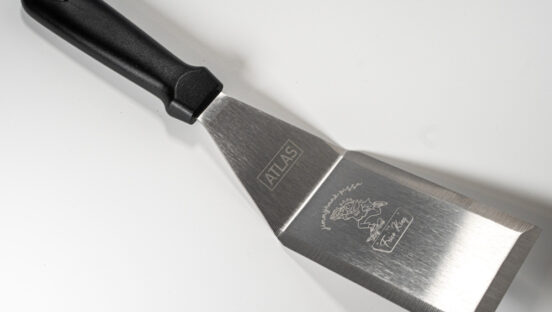Be Safe, Not Sorry
By Andrew Abernathy
When business is booming, a lot of things are going on in your pizzeria’s kitchen: Knives are chopping, sauce is stewing, dough is flying, and you can’t seem to keep the pies moving in and out of the oven fast enough. No doubt it’s easy to cut a few corners or delay a much-needed cleaning when you’re living the pie life in full swing. But what starts as a little spilled tomato sauce can turn into a real safety and sanitation issue rapidly. When mice and insects set up camp in your business and the health inspector viciously checks a failure on his evaluation sheet, you will wish that you’d invested a little more time and energy in your safety efforts. And keep in mind that health inspection results are a matter of public record—which means you’re only one news tip away from some business-busting press.
No doubt you know the safety basics already: Clean up regularly, refrigerate your products religiously, keep long hair in nets and don’t wipe your hands and tools on your apron. But do your managers and your staff know this? A well-educated staff is a safer, cleaner, more effective one. While you may not be able to shut down your business and pay to have your staff sent off to food safety school, you can invest in key members of your team by making sure they have a little extra education and certification. According to the Department of Labor, more than 100,000 nonfatal illnesses and injuries were reported in the full-service restaurant industry in 2007 (the most recent data available)—and that’s a statistic you don’t want to be a part of.
Where to Start
Safety is first and foremost a management issue, says Chris Koetke, dean of the School of culinary Arts at Kendall College, Chicago and a kitchen safety expert. “The most important thing is education, and that’s not always what people think,” Koetke explains. “Most people think the biggest safety issues are time and temperature abuse and cross-contamination, but the pivotal piece is education. For instance, even our dishwashers at Kendall are ServSafe-certified, and these are the kinds of things that are commonly overlooked.”
Koetke’s advice is straight forward: If the manager of any restaurant is even remotely unclear on the nuts and bolts of safety issues, you need to enroll him in a certification program; then send select staff members a little later. “Most people in the industry are very busy, and the idea of taking a certification class isn’t always highest on their to do list,” he notes. “The reality is, when you teach people the whys of food safety, it becomes infinitely more meaningful to the people who are executing it.”












